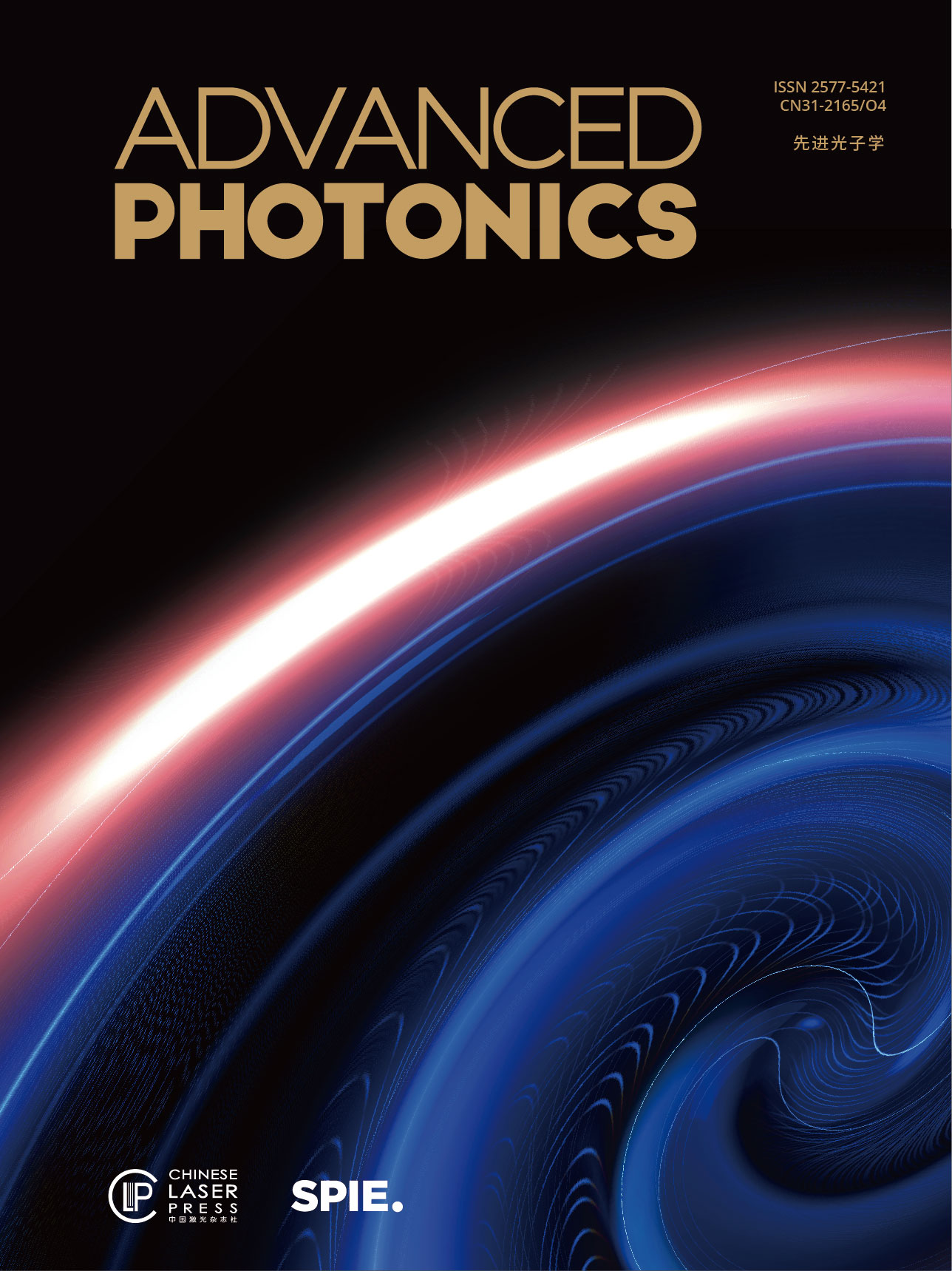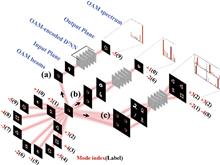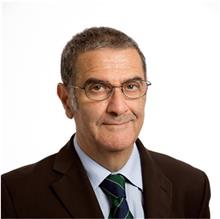 View fulltext
View fulltext
The article comments on a recent framework for all-optical classification using orbital-angular-momentum-encoded diffractive networks.
The article comments on recent work that provides theoretical underpinnings and experimental verification for modal power coupling in an air-core fiber, considering various types of modes.
Serge Haroche shares perspectives from his illustrious scientific career in physics and the evolving field of quantum photonics, in conversation with Chao-Yang Lu.
The Nobel Prize in Physics 2023 was awarded to Pierre Agostini, Ferenc Krausz and Anne L’Huillier for “experimental methods that generate attosecond pulses of light for the study of electron dynamics in matter.” We review the history of attosecond physics, recount the laureates’ achievements and their place within the field, discuss the breakthroughs made possible by the creation of attosecond pulses, and look to the future advances in attoscience.
Professor Guoqing Chang (Chinese Academy of Sciences) interviewed Professor Din Ping Tsai (City University of Hong Kong) on behalf of Advanced Photonics.
The Nobel Prize in Chemistry 2023 was awarded to Moungi G. Bawendi, Alexei I. Ekimov, and Louis E. Brus for “the discovery and synthesis of quantum dots (QDs)”. Here we review the history of QDs, bridge the connection between colloidal QDs and epitaxial QDs, revisit the milestones of their applications in optoelectronics, and provide insights into the future advancements of QDs.
The article comments on a recent advance in dual volatile and nonvolatile modulation for application in optical neural networks.
The article comments on a recent advance for wavelength tuning of laser particles, through a new photoelectrochemical etching method.
The article comments on a new way to design multiple microring resonators with large free spectral range and high intrinsic Q-factor, within the standard manufacturing process.
The article comments on the the impact on diverse fields of R. A. Beth’s direct detection of the angular momentum of light.
The article comments on a new approach to information acquisition in hyperspectral imaging.
The article comments on a recent advance in optical field confinement: using a nanoslit optical waveguide to generate guided waves with 1-nm partial confinement.
The article comments on a recently proposed innovative process that uses direct laser writing to achieve vivid, fine-tunable color at centimeter scale by leveraging the fabrication speed and the spatial resolution of pixelated F-P cavity structures.
The article comments on a novel BOCDA configuration that decouples spatial resolution from modulation or coding parameters, thereby ensuring both superior performance and cost effectiveness.
The article comments on an important step towards understanding the nondiffractive nature of optical vortex polarization features and investigating the intrinsic nature of spin-orbital interaction.
The article comments on a recent advance in optical quantum metrology.
Controllable optical propagation, such as forming diffraction-limited optical focusing, beyond the diffusion limit in biological tissue or tissue-like scattering media, has been desired for long yet considered challenging. In the past two decades, optical wavefront shaping (WFS) has been proposed and has progressed, demonstrating its remarkable potential. That said, inherent tradeoffs still exist among optimization speed, control degree of freedom, and energy gain, which has hindered wide applications of the technology. Most recently, an analogue optical phase conjugation system was developed, equipped with stimulated emission light amplification that effectively achieves the least tradeoff ever, yielding high-gain and high-speed performance of optical focusing through dynamic thick media.
Dynamic control of terahertz (THz) waves is a significant area of intense research. For modulating terahertz (THz) waves, metamaterials have emerged as a promising solution. This article comments on an innovative approach that was recently published.
Naomi Halas, professor of electrical and computer engineering at Rice University and winner of the prestigious 2022 Eni Energy Transition Award, discusses her vision for the future of plasmonics and nanophotonics, in terms of fundamentals and applications, in conversation with Jia Zhu, professor in the College of Engineering and Applied Science at Nanjing University and associate editor for Advanced Photonics.
The article comments on a recently reported OAM comb. The proposed approach relies on a simple azimuthal binary phase modulation scheme to transform a Gaussian beam into a structured light beam containing multiple OAM components with equal spacing and uniform power. It provides a convenient way to simultaneously tailor multiple OAM channels, with the potential to impact many fields, including optical information technology.
The article comments on the recently demonstrated deterministic generation of large-scale continuous-variable hyperentanglement.
Despite more than a century of photonic advances, there still exist solutions to Maxwell?s equations that remain elusive. Now, Qiwen Zhan and colleagues demonstrate the first toroidal vortex of light, introducing twists and folds in time and space for new forms of 4D structured light.
Lithium niobate on insulator (LNOI) technology, for electro-optical modulation and acoustic wave filtering in next-generation optical and wireless communications, is driving optoelectronic device performance to new heights. Hybrid integration allows LNOI to be an enabling technology for optical computation, microwave photonics, and quantum information, with large-scale photonic integration, high optical reconfigurability, and strong nonlinear interaction at the single photon level. Key areas of future research identified: large-size low-defect thin film lithium niobate wafer and high-performance device fabrication.
The article is an interview with Prof. Marko Lončar of the John A. Paulson School of Engineering and Applied Sciences (SEAS) at Harvard University, conducted by Guoqing Chang of the Chinese Academy of Sciences Institute of Physics, on behalf of Advanced Photonics.
A recently developed strategy to generate optical nonlinearities from various emitters localized in multilayer core/shell optical nanocrystals represents significant progress and great potential.
Prof. Xiang Zhang discusses his groundbreaking discoveries, innovative developments, and inspirations, with helpful advice and insights on future research directions.
Photonics will have a major impact in delivering net zero.
Ultrafast-laser direct lithography strategy engineers local chemistry at the nanoscale in glass, to achieve 3D direct writing of nanocrystals with a widely tunable bandgap. Feng Chen provides a commentary on the reported technique and its potential for nanocrystal-based device fabrication.
Sir Michael Berry was interviewed by Dr. Wei Liu of National University of Defense Technology, China, for Advanced Photonics.
Sir Peter Knight reflects on the field of quantum optics in an interview with Xiaosong Ma.
Jiuzhang 2.0 represents significant improvements, beyond the last year’s landmark.
An interview with Prof. Michal Lipson by Prof. Guoqing Chang traces Lipson’s professional pathway in the field of silicon photonics.
The recent quantum advantage demonstration by J.-W. Pan’s group at University of Science and Technology of China (USTC), based on a quantum optics experiment with 76 photons and a 100-mode interferometer,1 is a major step in the development of quantum technologies. Prior to this breakthrough, photonics was generally not seen as a leading contender in quantum computing.2 Several important advantages over superconducting-based implementations have made this work possible: optical photons allow for operation at far higher temperatures, do not suffer from decoherence, can be generated in various entangled states, and allow for long distance communication. The current achievement is based on the calculation of a Torontonian, an intensive mathematical task that would have required an overwehlmingly long time for a supercomputer but took only seconds for Pan’s quantum photonics device. Solving problems of scientific and societal relevance, such as the simulation of quantum systems to design new materials or the factorization of large numbers, as well as realizing a reconfigurable device, remains however to be done.
Professor Yuri Kivshar relates the course of his scientific research career.
The Advanced Photonics special issue celebrating the 60-year laser anniversary is an ideal opportunity to review some highlights from its history, at the same time taking us on a tour of over a century of Nobel Prizes.
The article is an interview with Shining Zhu of Nanjing Unversity, conducted by Guoqing Chang of the Chinese Academy of Sciences Insitute of Physics, on behalf of Advanced Photonics.
In volume 2, issue 3 of Advanced Photonics, Lan et al. reveal that a split ring resonator (SPRR) can be used as a very efficient thermo-acoustic source compared to other configurations. This commentary provides a quick overview of the work and how it sits in context with other forms of ultrasonic signal acquisition.
A commentary on the article “Three-dimensional tomography of red blood cells using deep learning” by J. Lim, A. Ayoub, and D. Psaltis, Adv. Photonics Volume 2, Issue 2, doi: 10.1117/1.AP.2.2.026001.
A commentary on the article “Uniform-velocity spacetime crystals” by Zoé-Lise Deck-Léger et al. in Advanced Photonics Volume 1, Issue 5.
A new kind of electromagnetic wave, combining the properties of propagating and evanescent waves, is discovered theoretically in a paper by E. Narimanov, published in this issue of Advanced Photonics. The commentary provides context for Narimov’s paper.
Metsurfaces continue to find an increasing number of applications. We provide a brief explanation of how metasurfaces can be used for three-dimensional imaging, as demonstrated by C. Jin et al in Advanced Photonics, Volume 1, Issue 3.
Integrating lithium niobate (LN) modulators with other functions on a single optical chip has proven difficult, until the development of thin film LN, which has enabled the development of silicon integrated photonic chips including LN modulators that can operate at very low voltage and at high speed. Recent progress on thin-film LN for high speed modulators is evaluated.
Continued support for research and investment in photonics requires that the public and policy makers are made aware of its significance for societal development. All of us have a role to play in promoting the importance of our field.
A fast off-axis scanning subvoxel light-sheet microscope enables high-throughput image large-volume specimens at cellular resolution.
Phonon-polaritons offer an exciting avenue in nanophotonics. We comment on the novel nanofabrication approach presented by Bo Qiang et al. in this issue of Advanced Photonics. Their approach to phononic material allows better radiation manipulation, and high Q-factors.
The increasing scope and influence of photonics is surveyed, within the context of the recent emergence of photonics-based technologies.
Advanced Photonics spoke with Sir John Pendry of Imperial College London, United Kingdom, about the history of transformation optics.
An explanation of bound states in the continuum (BICs) is offered. With particular attention to Friedrich–Wintgen BICs, the commentary presents a study by Bogdanov et al., which appears in the same issue of Advanced Photonics.














